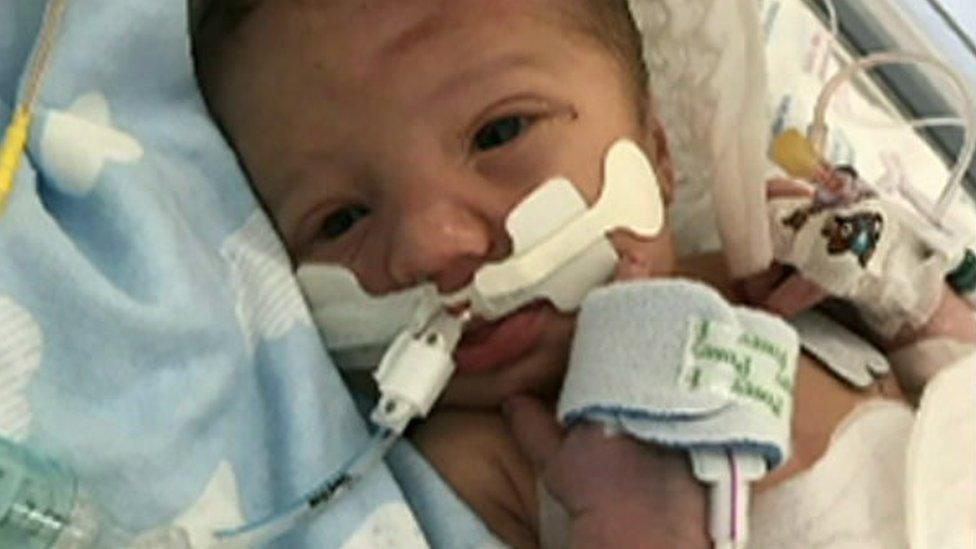East Kent maternity services still failing us, say families
- Published
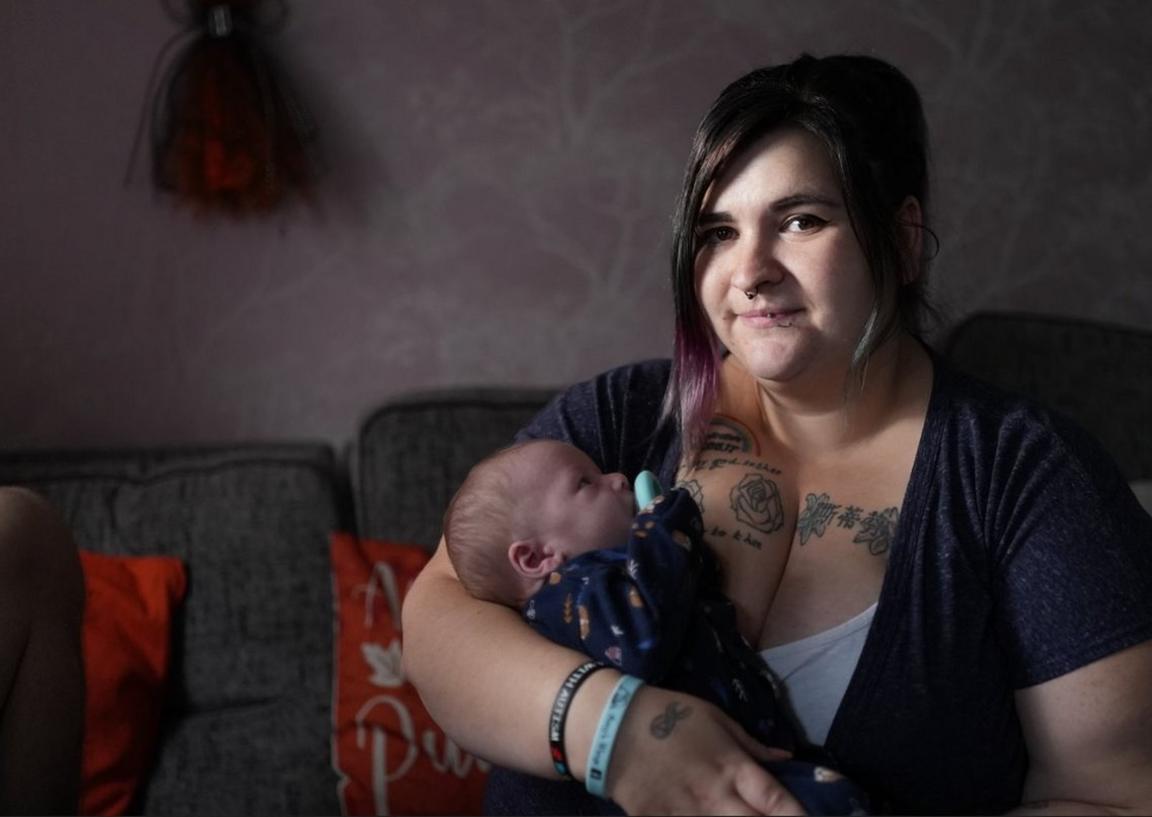
Stacie Goddard's baby Jamie is a bouncing one month old - but at one point she feared he would not survive
Maternity care at East Kent Hospitals NHS Trust is still beset by problems, a BBC investigation has found.
An independent review of the trust's maternity services from 2009 to 2020, launched after the death of a baby in 2017, will be published on Wednesday.
But BBC News has heard from families and seen concerns from staff that indicate continuing problems, including trainee midwives left unsupervised.
In a statement, the trust said it had worked hard to improve its service.
The inquiry came after an inquest found the death of baby Harry Richford at the trust in 2017 was "wholly avoidable".
More than 200 families have given evidence to the review, led by Dr Bill Kirkup.
But the BBC has been told of continued poor working practices at the trust, including consultants not responding to problems reported by junior doctors and trainees not being appropriately supervised.
Stacie Goddard gave birth to baby Jamie in September 2022 at the trust's Queen Elizabeth the Queen Mother (QEQM) hospital in Margate.
For a time she feared he wouldn't be coming home with her.
Her midwife went for lunch shortly before she gave birth after a long labour, leaving an inexperienced, poorly supervised second-year student midwife to deliver her son.
The baby had the cord wrapped around his neck but the trainee failed to spot it, says Stacie.
"She straightaway naturally just sort of picked him up and went to put them straight onto my chest, which obviously really constricted his windpipe," she said.
Jamie was white and not crying and Stacie's mum had to intervene.
When the midwife realised he wasn't breathing he was whisked away to be resuscitated.
Stacie, who lost her first child at 22 weeks, says she was left for half an hour not knowing whether her baby had survived.
"I was asking her: 'What's wrong? What's happened? Where's my baby?'
"Obviously, having lost a baby before, straightaway, that was the first thing I thought was another one… another one's gone."
Jamie is now well and at home with his parents.
Poor supervision
The midwifery course run by the nearby Canterbury Christ Church University has recently failed to gain accreditation from its regulator, in part because student midwifes were being left unsupervised while working at the trust.
Staff shortages in maternity is a national problem. The Royal College of Midwives says there is a shortage of more than 2,000 midwives in England.
But Sara Ledger, the head of research and development at maternity charity Baby Lifeline, says the East Kent Trust can do more to improve its services.
"There are gaps in what people know. So a failure to escalate concerns, failure to manage things when things go wrong," she said.
"Those are things that that could actually be improved with the right training. And we're not seeing that on the front line. We're not seeing it quickly enough."
Poor advice
Just six months after the Kirkup review was launched, Sara Verge called the QEQM hospital as she was worried about the lack of movement from one of the identical twins she was expecting.
"He'd had unusual movements, increased movements, and then a sudden stop in movement. So I phoned up and I expressed my concerns," she said.
As Sara, a learning support assistant from Herne Bay, was due to give birth just three days later, the midwife advised her to simply monitor the movements.
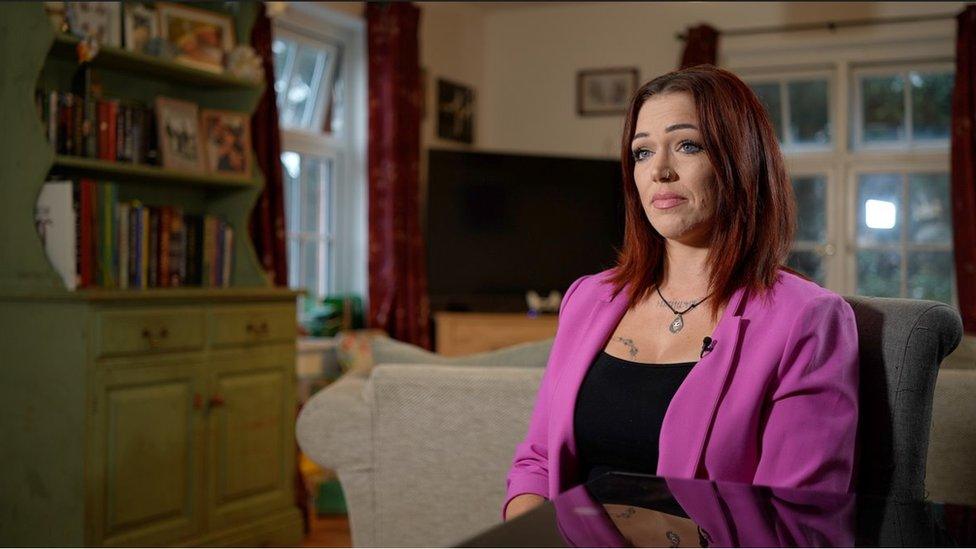
One of Sara Verge's identical twins died after she noticed unusual movements in the womb
When she went into hospital, tests showed one twin, Otis, had died; his brother Abel was born healthy and happy.
A letter from the trust eight months later said the advice to stay at home was "contrary to the triage guidelines which very clearly state that any alteration in movements is an indication for a clinical review on the same day".
"There's an identical little boy who's growing up alongside us and his siblings, and he is here and his brother isn't and that's not fair," said Sara.
"When Abel's playing and things like that, you do see that there should be another little boy sat beside him or playing beside him."
A UK-wide survey of trainee doctors in obstetrics and gynaecology by the General Medical Council paints a damning picture of the trust, particularly at the William Harvey Hospital in Ashford:
at William Harvey, 29% of trainees who responded said they were supervised by someone not competent to do so, compared with an average of 6% nationally
and 57% of William Harvey trainees frequently felt forced to cope with problems beyond their control, compared with 14% nationally
Sarah Shingler, chief nursing and midwifery officer for East Kent Hospitals, apologised "unreservedly to every family we have failed".
She said improvements included employing more consultants and midwives, extending the hours senior staff were on site and strengthening investigations.
"We know there is more work to do and will use Dr Kirkup's findings to continue driving forward improvements to ensure we are delivering the high quality care we and our patients expect."
- Published13 February 2020
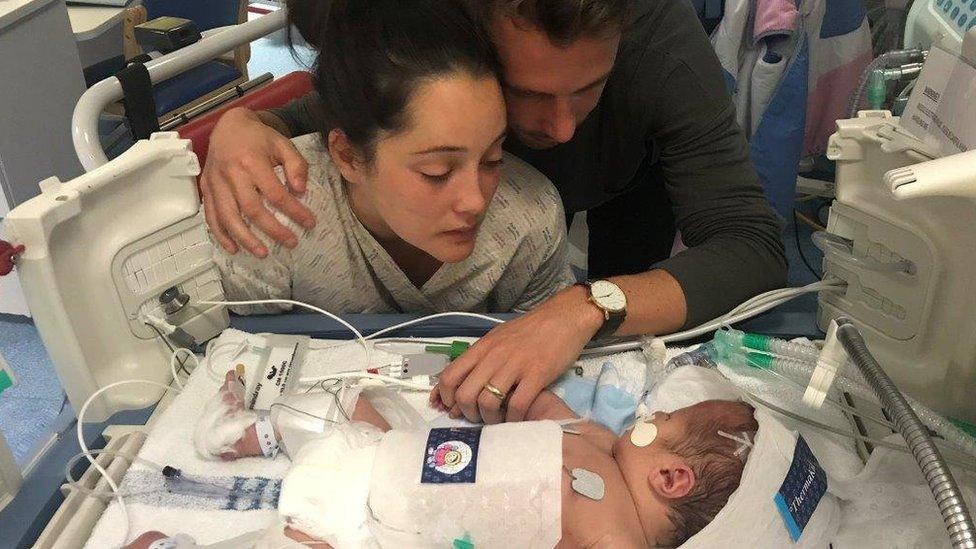
- Published13 January 2020
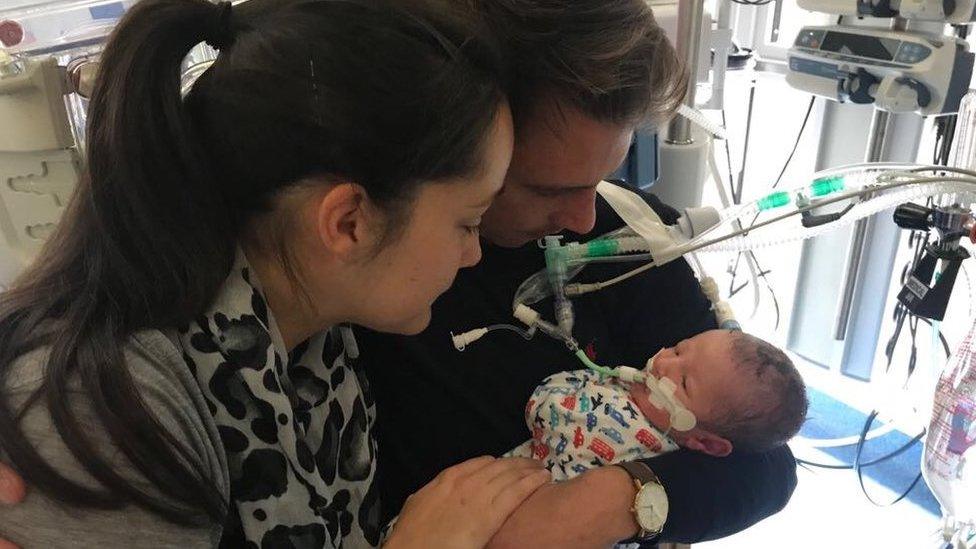
- Published8 January 2020
